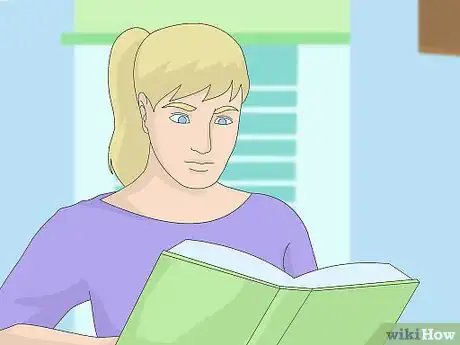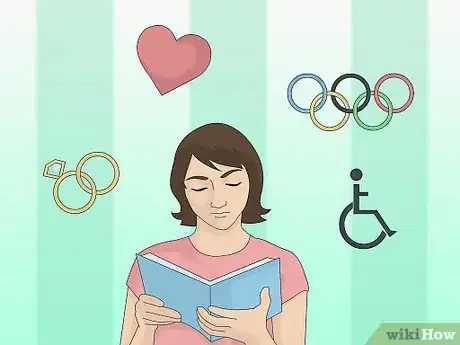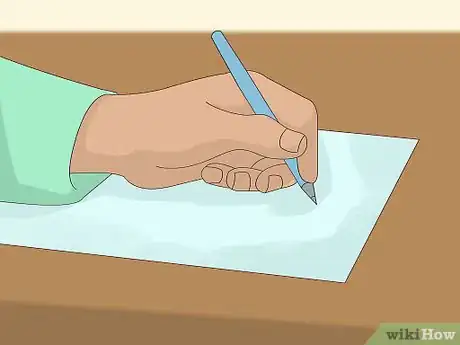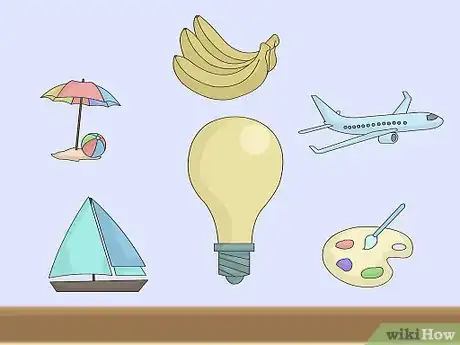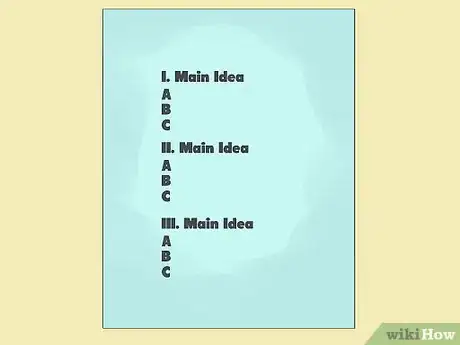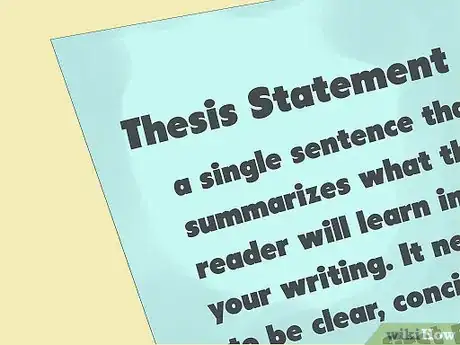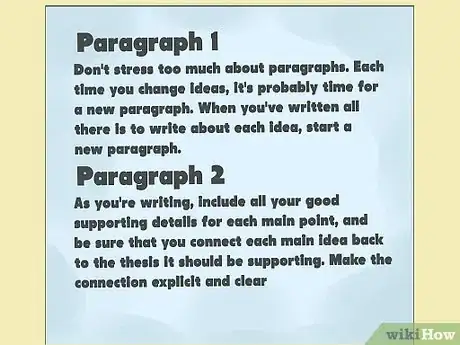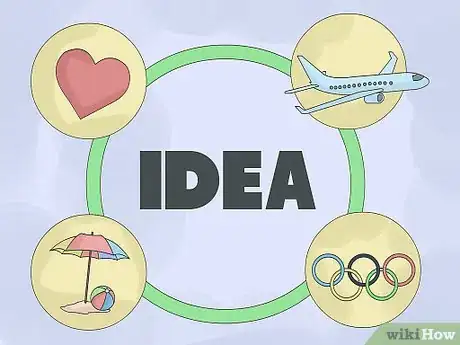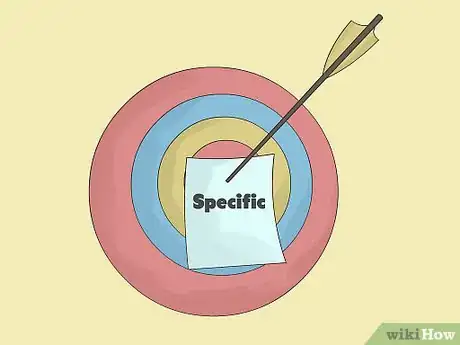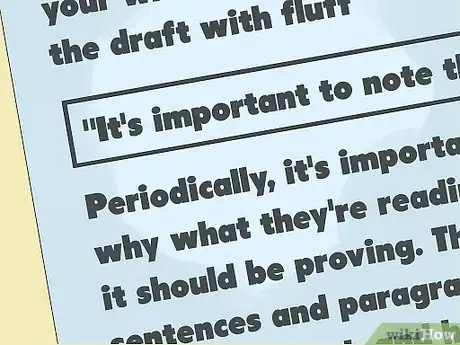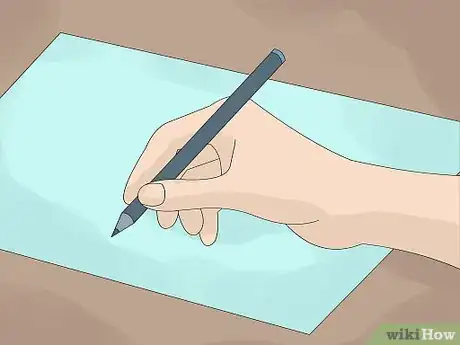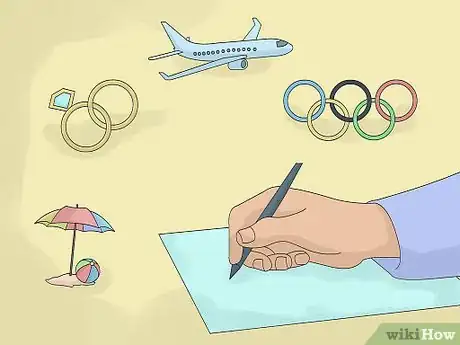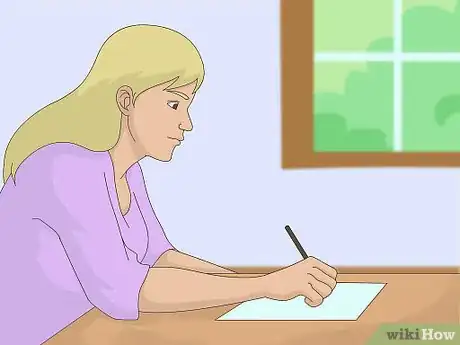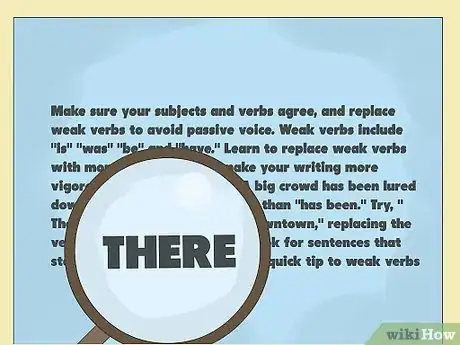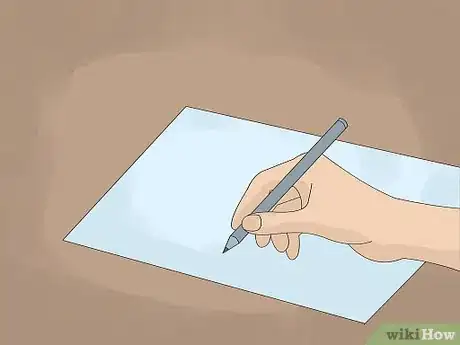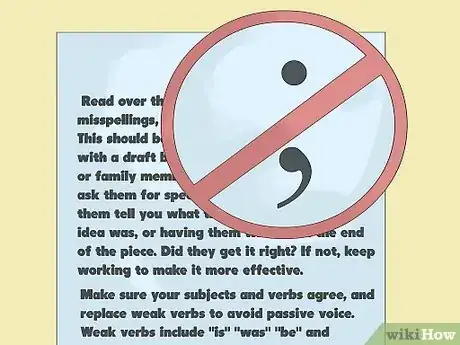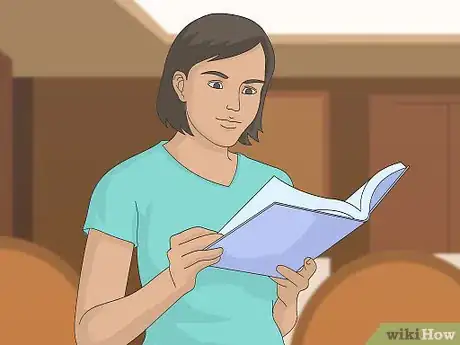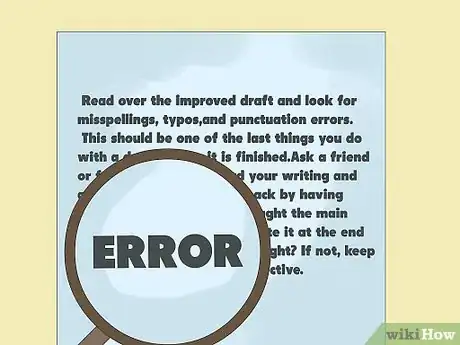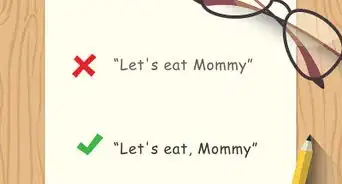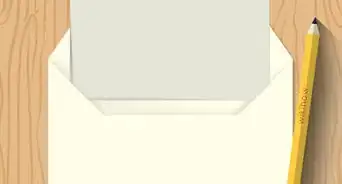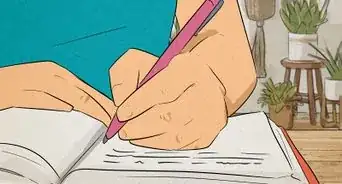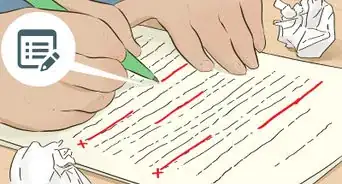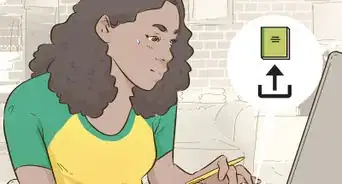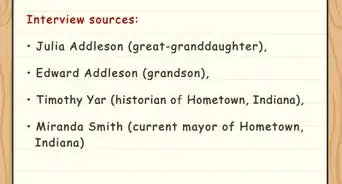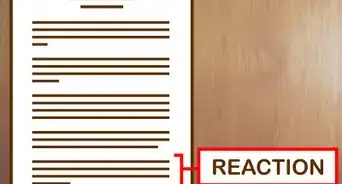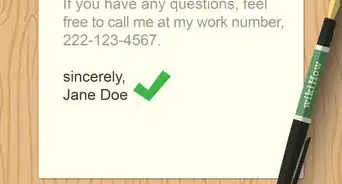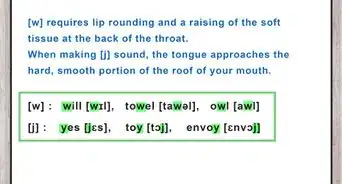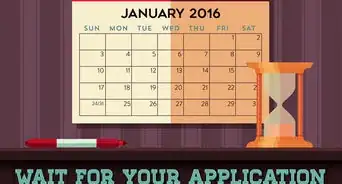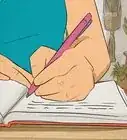This article was co-authored by Jake Adams. Jake Adams is an academic tutor and the owner of Simplifi EDU, a Santa Monica, California based online tutoring business offering learning resources and online tutors for academic subjects K-College, SAT & ACT prep, and college admissions applications. With over 14 years of professional tutoring experience, Jake is dedicated to providing his clients the very best online tutoring experience and access to a network of excellent undergraduate and graduate-level tutors from top colleges all over the nation. Jake holds a BS in International Business and Marketing from Pepperdine University.
There are 18 references cited in this article, which can be found at the bottom of the page.
This article has been viewed 27,231 times.
Effective writing should be clear and concise, whether you're writing school assignments, letters, or creative projects. If you want to make your writing more lively, learn to corral your ideas, produce solid drafts, and polish your writing the most effective way.
Steps
Organizing Your Thoughts
-
1Identify the overall goal of your writing assignment. Are you writing something for a school assignment? Writing an e-mail or letter to a friend? Writing creatively? Different types of writing have different goals, and you'll need to identify the purpose of your piece to write it effectively.[1]
- Look at your assignment sheet or writing prompt to find the purpose of school projects. If it's a question, your purpose is to answer the question.
- If you're writing correspondence, your purpose is to update the person about your life, to communicate, or to respond to their writing.
- If you're writing a story or poem, your purpose is to entertain.
-
2Identify your reader. If you're writing a card to your spouse, you'll want to write differently than a note to your doctor. What will the reader expect of your writing? What do they already know?[2]Advertisement
-
3Try freewriting to find your ideas. If you can't figure out the best way to start, just start writing and see where it goes. Set a 10 minute time limit and don't stop typing or writing until the ten minutes is up, then look back to see if you found an interesting idea on which to build.[3]
- If you don't like freewriting, try talking out loud and recording it on your phone, making lists, or a mind map.
-
4Select a main idea. When someone reads this piece of writing, what do you want them to learn? This could be one sentence or a few. Effective writing starts out with an interesting and complicated main idea.[4]
- If you're responding to a prompt for an assignment, your main idea should be your answer to the question being asked.
- If you're writing a letter, your main idea should be some topic from your life.
- If you're writing a story or poem, your main idea should be a plot, theme, or style.
-
5Fill in several supporting details for each main idea. What makes your main idea true? Think of the main idea like the top of a table. It doesn't do much good without the supporting legs to hold it up. A good main idea needs lots of specific, convincing details, or it won't be worth much.[5]
- Try to come up with at least three supporting details for each main idea in your writing.
-
6Organize your ideas into an effective outline. The order you came up with your original ideas might not be the most effective order.[6] To make your writing more effective, organize your points such that they will meet the reader's expectations and support your main ideas logically.[7]
- To learn to organize a formal outline, read this article.
-
7Try another organizational tool if necessary. If you don't like outlining, there are a variety of other organizational tools you can use to structure your ideas:
- Idea web
- Flow charts
- Mind maps
- Lists
- Diagrams
Writing a Draft
-
1Start with your most important main idea, called your thesis. A thesis statement is a single sentence that summarizes what the reader will learn in your writing. It needs to be clear, concise, and in the first paragraph of most writing.[8]
-
2Get right to the point. Ineffective writing will often attempt to create "suspense" or delay the main ideas to try to include "hooks" in the early parts of writing. It's far more effective to just get to the point and let your strong ideas do the work.[9]
-
3Use one paragraph for each important idea. Don't stress too much about paragraphs. Each time you change ideas, it's probably time for a new paragraph. When you've written all there is to write about each idea, start a new paragraph.[10]
-
4Connect each main idea to your thesis. As you're writing, include all your good supporting details for each main point, and be sure that you connect each main idea back to the thesis it should be supporting. Make the connection explicit and clear.
-
5Be specific. Avoid vague and abstract language. Instead of writing, "Seriously crazy weather is sometimes reported in Florida," use concrete details. Write, "Summer weather in Florida is often extremely humid and damp."[11]
-
6Give the reader "signposts." Periodically, it's important to remind the reader why what they're reading is important, and what it should be proving. This helps to transition between sentences and paragraphs.[12]
- After introducing a supporting detail, use signpost phrases like, "This displays..." or "It's important to note that..."
-
7Err on the side of over-explaining. Most inexperienced writers write too short, and haven't fully explained the connections between their main ideas, support, and thesis. If you're worried about running too short in your writing, focus on explaining more, not filling the draft with fluff.[13]
-
8Focus on writing your ideas, not the wording. As you're writing your draft, don't worry about "sounding smart." The first draft of any writing needs to focus on communicating your ideas, not impressing someone with your vocabulary.
Revising Your Writing
-
1Cut everything that doesn't move your ideas forward. After you finish a draft, read it with a pencil in your hand, or your finger on the delete button. If you see something that repeats a point you've already made, or wastes the reader's time, delete it. Anything that isn't working to prove the main idea is ineffective wasted space.
- It's sometimes necessary to eliminate unnecessary sentences, ideas, points, sections, or even paragraphs to make a piece more effective.
-
2Replace weak verbs with strong verbs. Make sure your subjects and verbs agree, and replace weak verbs to avoid passive voice. Weak verbs include "is" "was" "be" and "have." Learn to replace weak verbs with more active verbs to make your writing more vigorous.[14]
- Instead of writing "A big crowd has been lured downtown," use a stronger verb than "has been." Try, "The festival lured a big crowd downtown," replacing the verb with the stronger "lured."
- Look for sentences that start with the word "there" for a quick tip to weak verbs.
-
3Eliminate unnecessary words. Bad writing is wordy and wastes the reader's time. Good writing is concise, cutting straight to the point. Don't use two words when a single more accurate word is sufficient.[15]
- Instead of writing "The party was super fun and exciting," write, "The party was thrilling."
-
4
-
5Look back at your original purpose and make sure it matches. Does your writing accomplish what you wanted it to accomplish? Does it explain the main idea fully and clearly? If so, you're ready to move on to late concerns.
-
6Proofread last. Read over the improved draft and look for misspellings, typos, and punctuation errors. This should be one of the last things you do with a draft before it is finished.[18]
-
7Get feedback, if possible. Ask a friend or family member to read your writing and ask them for specific feedback by having them tell you what they thought the main idea was, or having them write it at the end of the piece. Did they get it right? If not, keep working to make it more effective.[19]
Expert Q&A
-
QuestionWhat should I do if I'm writing a report and I'm not sure I identified the author's intent?
 Jake AdamsJake Adams is an academic tutor and the owner of Simplifi EDU, a Santa Monica, California based online tutoring business offering learning resources and online tutors for academic subjects K-College, SAT & ACT prep, and college admissions applications. With over 14 years of professional tutoring experience, Jake is dedicated to providing his clients the very best online tutoring experience and access to a network of excellent undergraduate and graduate-level tutors from top colleges all over the nation. Jake holds a BS in International Business and Marketing from Pepperdine University.
Jake AdamsJake Adams is an academic tutor and the owner of Simplifi EDU, a Santa Monica, California based online tutoring business offering learning resources and online tutors for academic subjects K-College, SAT & ACT prep, and college admissions applications. With over 14 years of professional tutoring experience, Jake is dedicated to providing his clients the very best online tutoring experience and access to a network of excellent undergraduate and graduate-level tutors from top colleges all over the nation. Jake holds a BS in International Business and Marketing from Pepperdine University.
Academic Tutor & Test Prep Specialist Articles can be interpreted in a variety of different ways, so there's always going to be some room to negotiate when it comes to writing about something like authorial intent. If you can justify your position with evidence, it's reasonable to assume that you're adequately fulfilling the requirements of the assignment.
Articles can be interpreted in a variety of different ways, so there's always going to be some room to negotiate when it comes to writing about something like authorial intent. If you can justify your position with evidence, it's reasonable to assume that you're adequately fulfilling the requirements of the assignment. -
QuestionShould I start writing my report when I'm still reading the book?
 Jake AdamsJake Adams is an academic tutor and the owner of Simplifi EDU, a Santa Monica, California based online tutoring business offering learning resources and online tutors for academic subjects K-College, SAT & ACT prep, and college admissions applications. With over 14 years of professional tutoring experience, Jake is dedicated to providing his clients the very best online tutoring experience and access to a network of excellent undergraduate and graduate-level tutors from top colleges all over the nation. Jake holds a BS in International Business and Marketing from Pepperdine University.
Jake AdamsJake Adams is an academic tutor and the owner of Simplifi EDU, a Santa Monica, California based online tutoring business offering learning resources and online tutors for academic subjects K-College, SAT & ACT prep, and college admissions applications. With over 14 years of professional tutoring experience, Jake is dedicated to providing his clients the very best online tutoring experience and access to a network of excellent undergraduate and graduate-level tutors from top colleges all over the nation. Jake holds a BS in International Business and Marketing from Pepperdine University.
Academic Tutor & Test Prep Specialist I don't know about writing the report itself, but you should absolutely be taking notes, marking passages, or writing parts of your outline. That will speed up the writing process once you're done, and it will keep you more engaged as you read.
I don't know about writing the report itself, but you should absolutely be taking notes, marking passages, or writing parts of your outline. That will speed up the writing process once you're done, and it will keep you more engaged as you read. -
QuestionMy group worked really hard on writing a script for theater class, but it's due in 2 days and we are only halfway done. How do we write effectively and without distractions? We are going to the library.
 Tom De BackerTop AnswererAt some point, you're going to just have to accept that it will be too late. You should have spent more time on it in the past. Among high quality, low price and fast delivery, you can always only choose two. If it must be done fast at a low price, the quality will be poor. So if you have only two days left and it absolutely must be done, then the quality will suffer, which is a pity, because you already put it the work to make the first half really good.
Tom De BackerTop AnswererAt some point, you're going to just have to accept that it will be too late. You should have spent more time on it in the past. Among high quality, low price and fast delivery, you can always only choose two. If it must be done fast at a low price, the quality will be poor. So if you have only two days left and it absolutely must be done, then the quality will suffer, which is a pity, because you already put it the work to make the first half really good.
References
- ↑ http://rasmussen.libanswers.com/faq/43504
- ↑ https://www.thecreativepenn.com/2013/06/13/identify-your-target-audience/
- ↑ https://www.lynchburg.edu/academics/writing-center/wilmer-writing-center-online-writing-lab/drafting-a-document/freewriting-techniques/
- ↑ https://www.landmarkoutreach.org/strategies/finding-main-idea/
- ↑ https://www.cuesta.edu/student/resources/ssc/study_guides/reading_comp/307_read_main_idea.html
- ↑ Jake Adams. Scholarship & Admissions Counselor. Expert Interview. 20 May 2020.
- ↑ https://writingcenter.fas.harvard.edu/pages/outlining
- ↑ http://www.grammarbook.com/grammar/effWrite.asp
- ↑ https://www.grammarly.com/blog/specificity-in-writing/
- ↑ Jake Adams. Scholarship & Admissions Counselor. Expert Interview. 20 May 2020.
- ↑ https://writingcenter.fas.harvard.edu/pages/developing-thesis
- ↑ http://owll.massey.ac.nz/pdf/studyup-essays-2-handout.pdf
- ↑ https://www.helpingwritersbecomeauthors.com/most-common-mistakes-surefire-sign/
- ↑ https://jerryjenkins.com/powerful-verbs/
- ↑ https://owl.purdue.edu/owl/general_writing/academic_writing/conciseness/eliminating_words.html
- ↑ https://www.grammarly.com/blog/run-on-sentence-basics/
- ↑ https://academicguides.waldenu.edu/writingcenter/grammar/runonsentences
- ↑ https://writing.wisc.edu/handbook/grammarpunct/proofreading/
- ↑ https://www.helpingwritersbecomeauthors.com/how-to-get-feedback-on-your-writing-and/#
